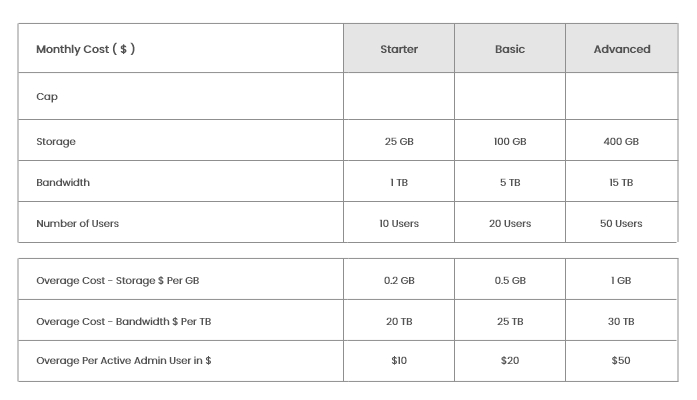



Top Website Security Recommendations
Google has stated that your site's rankings will suffer if…
It is no secret that the digital world is expanding very quickly and that new technologies are being developed daily. Numerous benefits that make daily life easier come along with this growth, but it also brings about the negative aspects of the online world.
Up to 88% of UK companies experienced online breaches in the previous 12 months, according to data obtained by security company Carbon Black. Although this is lower than in other European nations, it is still a startling statistic that emphasizes how crucial it is to keep your website safe from unwanted attacks. To that end, here are five suggestions.
Hack-Proof Passwords
Use a strong login and change it frequently if you use a content management system (CMS). The majority of websites with password selection options have 'Password Strength Grading' systems in place. As you enter a password, these systems assess it based on how difficult it is to guess:
- Red denotes a terrible password that could be easily guessed by hackers or others with evil intent, giving them access to your website or any other place you would use it.
- Orange: Although these passwords are more difficult for hackers to guess, they could not present a significant difficulty.
- Green indicates that the password is really strong and would need a lot of time and effort to decipher.
You must always use passwords that are rated green because these are more difficult for hackers to decipher. Coming back from a hacked site can occasionally be quite challenging, so once a hacker has access to the backend of your site, you can consider it lost.
Additionally crucial are regular password changes. Hackers can now use the software on websites that attempt to guess your password repeatedly. No matter how complex it is, the software will eventually predict it if given enough time. Therefore, defeat them at their own game and frequently vary it to make it even more difficult for them to predict!
2FA Is A Friend, Not An Inconvenience!
Two-factor authentication, commonly referred to as two-step verification or dual-factor authentication, or simply 2FA is a security procedure that requires users to give a second authentication method in addition to their primary one.
Some people may find two-factor authentication annoying since they may feel it is inefficient to log onto one device only to have to authenticate their access on another. However, even though it may seem like an inconvenience, 2FA is one of the most effective techniques for keeping your website safe.
Think of your website as a safe deposit box. A hacker's first point of entry is your password, which has a high strength rating. If you don't employ 2FA, once the password has been guessed, the hacker has immediate access to the payload.
If you employ 2FA, your website gains an additional secure door, giving hackers another one to try to open in order to access the payload if the first one is penetrated. This door is typically much harder to open because 2FA frequently requires you to enter a pin or code that is supplied to your email address or mobile device and is typically something that only you have access to.
This makes it far more difficult for people who wish to harm your website to access it.
Recurrent Updates
The back end of your website can be protected from hackers in a number of ways, including by implementing 2FA and routinely upgrading your password. You can also do this by routinely updating your website and/or its plugins.
When a new update to a plugin or CMS is released, it is crucial that you update it as soon as you can because updates to website versions or plugins can contain crucial security features or patches.
For instance, researchers in Finland discovered flaws in the File Manager WordPress Plugin in September 2020, which made it simpler for hackers to post dangerous stuff to people's websites - especially if they were created in WordPress.
Within a few hours, the plugin's developer issued a fix for the problem; users of the updated version were immediately shielded from the vulnerability. Those who hadn't might have had contaminated websites.
This case study only serves to emphasize how crucial it is to maintain your website secure and updated on a regular basis.
Get an HTTPS-secured website and content management system so that you are always protected when utilizing Hocalwire CMS.
Green padlock
Installing an SSL certificate is obviously one of the top security recommendations for a safe website. This is especially true if your website uses or maintains user information, including card information and contact information all the way up to contact details.
A sort of encryption known as SSL, or Secure Socket Layer, adds an additional layer of security between your web server and a browser. This makes it impossible for hackers to eavesdrop on your online activity.
Because SSLs are so crucial, Google has stated that your site's rankings will suffer if it lacks one. Google has also made it plain that if your website is unsafe, it will notify everyone who visits it by saying the following:
Having an SSL setup will remove this mistake and display a "secure" padlock next to the site URL, which is considerably more reassuring. This error will undoubtedly discourage users from accessing your website.
Hocalwire lets you specify a special URL for each tale and serves the narrative by identifying the device that made the initial request. We can offer different pages and views from the same domain if necessary thanks to robust front-end architecture.
Safety is Crucial
WordPress is renowned for its adaptability and extensive library of plugins that can be used to enhance the functioning of a website. Another one of these plugins is WordFence.
WordFence is a security plugin that receives high praise from security professionals all around the world rather than offering additional capabilities. The main feature of WordFence is that it enhances your website with a WAF, or Web Application Firewall.
In order to protect the server from assaults like SQL injections, DDOS attacks, and other attacks that aim at the server in order to expose your website and its data, the WAF monitors all traffic going into and out of your website and serves as a kind of shield between the website and the web server.
You can run site-wide scans with WordFence to find any potentially harmful files that may be present on the website. After that, you can request website cleaning from your host or web team.
It is a wonderful, free plugin that is simple to install and gives your website an additional layer of security.
Most people assume that website security should be completely handled by your web host or development team, but this isn't the case. While they will be responsible for the majority of the security work, you must ensure that you do your part to keep your website safe and secure.
You can take steps to make it difficult for hackers to access your website by utilizing 2FA, using strong passwords that are changed frequently, and checking that your plugins are current.
Hocalwire CMS handles the technical parts of keeping Large Sitemap, Indexing pages for Google, Optimizing page load times, Maintaining assets and file systems, and Warning for broken links and pages while you handle all these non-technical components of SEO for Enterprise sites. If you're searching for an enterprise-grade content management system, these are significant value adds. To learn more, Get a Free Demo of Hocalwire CMS.

